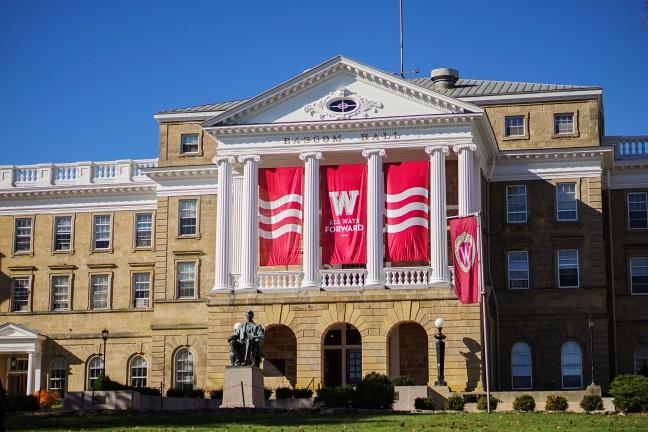Tucked away unassumingly on the fourth floor of Steenbock Library, the University Archives is starting to teem with life — and for good reason.
The archives are home to materials exclusively pertaining to the University of Wisconsin, from yearbooks to student organization records to faculty correspondence. Some files, like those related to the Dow Chemical incidents, are highly processed and have been viewed by many historians and the general public. Other boxes of information sit unprocessed, with papers upon papers researchers have yet to look through.
Like many students, I am currently enrolled in a class which requires that I use the archives for a project. I often make the trek across campus from my normal cave in Humanities to see what new materials I can learn from that day. In the past couple weeks, I’ve noticed the archives absolutely explode with people and the carts of boxes they are using to uncover the untold stories of UW’s past.
Learning about UW’s history is essential to understanding the sociocultural ecosystem one finds themselves thrust into for their tenure as a student. When someone enters elementary school, for example, it is almost customary for curriculums to include lessons about the school’s closest city and its cultural history, as well as broader state histories and national histories. Even though the students live there, it is recognized that students must learn about the history of the place they find themselves in so that they made make informed decisions to impact the world around them.
Editorial Board: #HomeIsWhereWIArent — a hard truth, a call to action for media
While orientation programs work to help UW students understand the campus environment and provide the building blocks for everyday behaviors in Madison, this type of orientation cannot adequately help students understand the sometimes amazing, sometimes utterly disgusting cultural history of UW. This disconnect directly leads to situations where students do not share a mutual cultural understanding, thereby limiting interaction and inclusion on campus.
For example, take the recent movement and demands from the Student Inclusion Coalition’s response to the UW Homecoming Committee’s video and other acts of exclusion on campus. While it is easy to remember histories of national exclusion narratives, particularly the Civil Rights era, which is so heavily embedded in American primary education, UW’s narratives of exclusion and appropriation do not pervade into the general student population. The understanding of these narratives currently only comes with one’s own exploration or by stumbling into a class specifically designed to look at these histories.
Campus-based incidents support notions that inclusion and acceptance of students from all backgrounds has never found solid footing at this university. Take the elimination of all anti-discrimination clauses in university-approved housing units in the 1950s. At first glance, this motion, taken jointly from student and faculty actions, seems to indicate UW’s progressive nature and commitment to inclusion from a recent past. UW created this clause before most other universities in the country, after all.
Studying this event, however, it is clear student attitudes and reactions prevented the clause from actually ending discriminatory and exclusive practices in UW student life. Fraternities and sororities, the main housing bodies impacted by this new clause, continued to have almost exclusively white memberships from the elimination of this clause until the present day.
UW Homecoming video emblematic of deep-seeded racial issues at UW
Even in 1957, it seemed unanimous among students that legislative changes could only change what was on paper and, while providing the impetus for some cultural change, was not successful in including students on campus. In a 1957 Inter-fraternity Council Anti-Discrimination Committee report available at the archives, one author suggests achieving an inclusive student culture can only be created by the students themselves.
Now, when there are protests specifically including faculty and staff members who are directly involved with the student life on campus among the protesters’ ranks, this sentiment can’t seem more accurate. While university-led initiatives lining SIC’s demands can cause the impetus for cultural change on campus, history tells us changes in student’s attitudes towards inclusion are needed, and those changes in student attitudes can only be created by the students themselves.
So what does this mean for the current campus climate? Certainly, it is not a call to sit back and do nothing. Perhaps the first step is to become acquainted with campus history and learn what has failed in the past to increase acceptance and inclusion on campus. When one reads these histories, they can spark an internal debate of one’s own bias and exclusion, igniting personal solutions to contribute to an inclusive and welcoming campus climate.
Maybe it is time for UW to consider educating its students beyond breadth and Comm B requirements and educate them about the history of their institution, for better or for worse.
Angela Peterson ([email protected]) is a senior studying history and music.




















